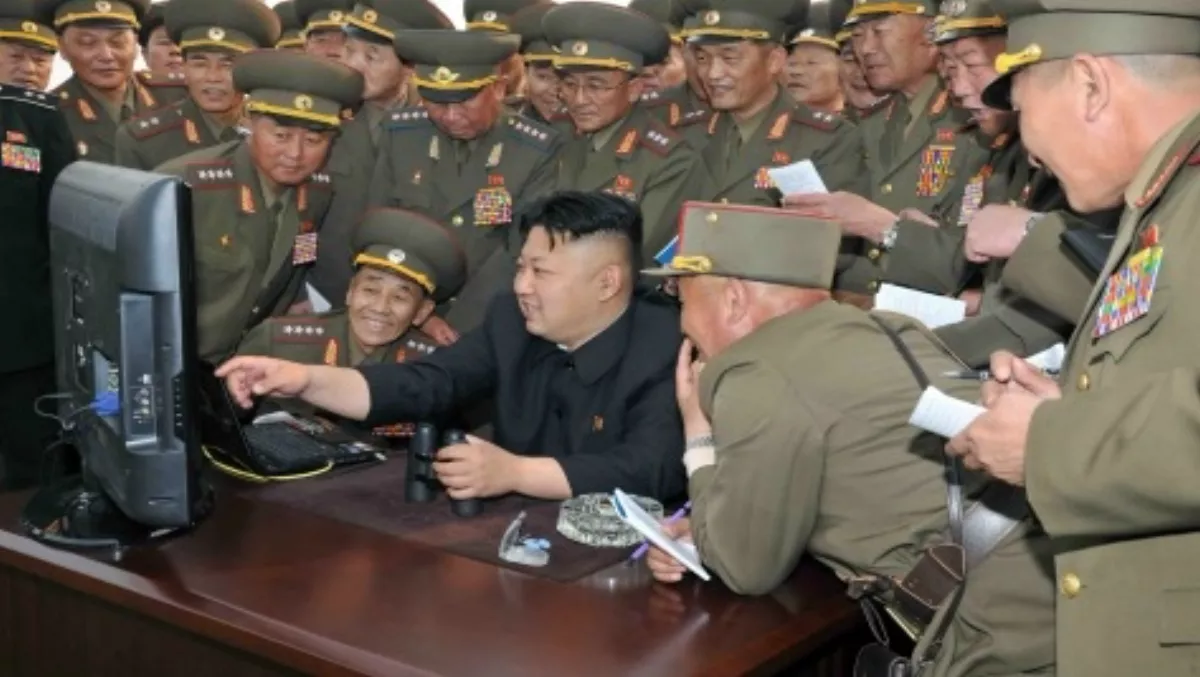
Sony vs North Korea - everything you need to know
The Sony cyber attack was one the biggest scandals that unfolded at the end of last year. Who would have thought Seth Rogen, North Korea and President Obama would appear in the same news item?
Let's start at the beginning.
Hollywood funny guys Seth Rogen and James Franco, known for their controversial and satirical sense of humour, made a new film called The Interview. In the film, Rogen and Franco play journalists who are recruited by the CIA to assassinate Kim Jung Un, the infamous leader of North Korea.
North Korea isn't exactly known for its sense of humour, and apparently it didn't find the plot of the film very amusing. In June, North Korea's state-run news released a statement, saying the film was "the most blatant act of terrorism and an act or war that we will never tolerate," according to NPR.
Then news broke that Sony Pictures, the studio behind the film, had been hacked.
At the end of November, the first sign of a digital break-in came in the form of a skull flashing on every employee's computer screen, with the warning "this is just the beginning". Pretty freaky. It's a like a movie. The hackers said they had obtained all of Sony's internal data and would release its top secrets if the company didn't obey their demands.
Huge amounts of personal data including executive's emails containing scathing comments about actors, celebrities, journalists and President Obama, salaries, social security numbers, and personal addresses were released, as well as several films being leaked, a huge blow to the studio.
The cyber attack continued to cripple the company, as more confidential information was published by anyone who had access to the hackers' dump. Employees were unable to use their computers or emails.
Within a few days it was reported that Sony suspected North Korea of the cyber attack, in retaliation for The Interview.
A silly movie by Seth Rogen and James Franco causing a cyber attack by another country sounds ridiculous and a genius marketing ploy.
However, by December, Sony had hired a cyber security firm to look into the attack, and the FBI confirmed it had launched its own investigation.
Over the next few days more critical information was leaked, including executive passwords, contract information, film budgets, and passport files.
On December 4, 11 days after the initial attack, The Associated Press reported some cyber-security experts found "striking similarities between the code used in the hack of Sony Pictures Entertainment and attacks blamed on North Korea which targeted South Korean companies and government agencies last year.
North Korea denied the leak on December 7.
The Interview premiered in Los Angeles on December 11, followed by further releases of stolen information.
On December 16, the hackers threatened to attack movie theatres that show The Interview. This would be the first time the hackers mention the film by name. In response, Seth Rogen and James Franco abruptly cancelled their promotional tour of the film.
Various theatres started pulling The Interview from showing, and Sony scrapped the Christmas Day release of the film. "In light of the decision by the majority of our exhibitors not to show the film The Interview, we have decided not to move forward with the planned December 25 theatrical release," Sony said in a statement. The company also pulled all television advertising for The Interview.
The FBI publicly confirmed the North Korean government was behind the attacks on December 19. "North Korea's actions were intended to inflict significant harm on a U.S. business and suppress the right of American citizens to express themselves, " the FBI said in a statement.
President Obama weighed in on the issue at his annual year-end press conference, stating Sony 'made a mistake' by not releasing the film. "We cannot have a society in which some dictator someplace can start imposing censorship here in the United States," he said.
On December 21, North Korea claimed the U.S was behind the making of The Interview, and threatened to attack "the White House, the Pentagon and the whole U.S. mainland.
Two days before Christmas, Sony announced they would release The Interview in theatres on December 25 as planned, earning praise from Obama as well as Rogen and Franco. The film was made available online on December 24. By the end of the year, online sales reached US$18m.
It was reported that Sony had made post-production alterations to the film to reduce its insensitivity to North Korea.
Addressing the Consumer Electronics Show is Las Vegas yesterday, Kaz Hirai, Sony CEO, spoke out about the hacking for the first time, stating the attack was "one of the most vicious and malicious cyber attacks that we've known in recent history.
North Korea continues to vehemently deny any involvement. There are further claims the attack was done by a Sony insider and even the Russians. The FBI investigation continues.


